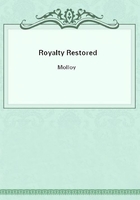
第107章 CHAPTER XVIII.(4)
The appetite of public credulity seeming to increase by that on which it fed, this avowal was readily believed. That the accusation had not been previously made; that Oates had months before sworn he knew no others implicated in the plot beyond those he named; that the queen had never interfered in religious matters; that she loved her husband exceeding well, were facts completely overlooked in the general agitation. Parliament "was in a rage and flame;" and next day the Commons drew up an address to the king, stating that "having received information of a most desperate and traitorous design against the life of his sacred majesty, wherein the queen is particularly charged and accused"they besought him that "she and all her family, and all papists and reputed papists, be forthwith removed from his court."Furthermore, the House sent a message to the Peers, desiring their concurrence in this request; but the Lords made answer, before doing so they would examine the witnesses against her majesty. This resolution was loudly and indecently protested against by Lord Shaftesbury and two of his friends.
The king had discredited the story of the plot from the first;but remembering the unhappy consequences which had resulted upon the disagreement of the monarch and his parliament in the previous reign, he weakly resolved to let himself be carried away by the storm, other than offer it resistance. On the condemnation of the Jesuits, he had appeared unhappy and dissatisfied; "but," says Lord Romney, "after he had had a little advice he kept his displeasure to himself." The Duke of York states, in the Stuart Papers, that "the seeming necessity of his affairs made his majesty think he could not be safe but by consenting every day to the execution of those he knew in his heart to be most innocent." Now, however, when foul charges were made against the queen, calculated not merely to ruin her honour but destroy her life, he resolved to interfere. He therefore requested she would return to Whitehall, where she should be safe under his protection; and feeling assured Oates had received instructions from others more villainous than their tool, he ordered a strict guard to be kept upon him. This he was, however, obliged to remove next day at request of the Commons.
On the examination before the House of Lords of Oates and Bedlow, their evidence proved so vague and contradictory that it was rejected even by the most credulous. When Bedlow was asked "why be had not disclosed such a perilous matter in conjunction with his previous information touching the murder of Sir Edmondbury Godfrey," he coolly replied, "it had escaped his memory." On Oates being sent to point out the apartment in which he had seen her majesty and the Jesuits, he first selected the guard-room, and afterwards the privy chamber, places in which it would have been impossible to have held secret consultation. Aware that the king was resolved to protect her majesty, and conscious the evidence of her accusers was more wildly improbable than usual, the Lords refused to second the address of the Commons, when the charge against this hapless woman was abandoned, to the great vexation of my Lord Shaftesbury.
Though the queen happily escaped the toils of her enemies, the reign of terror was by no means at an end. At request of the king, the Duke of York left England and took refuge in Brussels;the catholic peers imprisoned in the Tower were impeached with high treason; Hill, Green, and Berry, servants of her majesty, charged with the murder of Sir Edmondbury Godfrey, were, without a shadow of evidence, hurried to the scaffold, as were soon after Whitebread, Fenwick, Harcourt, Gavan and Turner, Jesuits all, and Langhorn, a catholic lawyer, for conspiring to murder the king.
On the morning when these unfortunate men stood ignominiously bound to the gallows at Tyburn, the instruments of death before their eyes, the angry murmurs of the surging mob ringing in their ears, suddenly the sound of a voice crying aloud, "A pardon! a pardon!" was heard afar off, and presently a horseman appeared riding at full speed. The soldiers with some difficulty making way for him through a line of excited people, he advanced to the foot of the scaffold, and handed a roll of paper bearing the king's seal to the sheriff, who, opening it, read a promise of pardon to those now standing face to face with death, provided "they should acknowledge the conspiracy, and lay open what they knew thereof." To this they replied they knew of no plot, and had never desired harm to the king; and, praying for those who had sought their lives, they died.